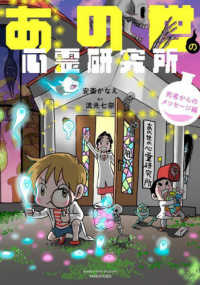Full Description
Within anthropology, as elsewhere in the human sciences, there is a tendency to divide knowledge making into two separate poles: conceptual (theory) vs. empirical (ethnography). In Theory Can Be More than It Used to Be, Dominic Boyer, James D. Faubion, and George E. Marcus argue that we need to take a step back from the assumption that we know what theory is to investigate how theory—a matter of concepts, of analytic practice, of medium of value, of professional ideology—operates in anthropology and related fields today. They have assembled a distinguished group of scholars to diagnose the state of the theory-ethnography divide in anthropology today and to explore alternative modes of analytical and pedagogical practice.
Continuing the methodological insights provided in Fieldwork Is Not What It Used to Be, the contributors to this volume find that now is an optimal time to reflect on the status of theory in relation to ethnographic research in anthropology and kindred disciplines. Together they engage with questions such as, What passes for theory in anthropology and the human sciences today and why? What is theory's relation to ethnography? How are students trained to identify and respect anthropological theorization and how do they practice theoretical work in their later career stages? What theoretical experiments, languages, and institutions are available to the human sciences? Throughout, the editors and authors consider theory in practical terms, rather than as an amorphous set of ideas, an esoteric discourse of power, a norm of intellectual life, or an infinitely contestable canon of texts. A short editorial afterword explores alternative ethics and institutions of pedagogy and training in theory.
Contents
Introduction: New Methodologies for a Transformed Discipline
by Dominic Boyer and George E. MarcusPart I. Ethnography, Fieldwork, Theorization1. Portable Analytics and Lateral Theory
by Dominic Boyer and Cymene Howe2. On Programmatics
by James D. Faubion3. The Ambitions of Theory Work in the Production of Contemporary Anthropological Research
by George E. Marcus4. Theorizing the Present Ethnographically
by Andreas Glaeser5. Trans-formations of Biology and of Theory
by Kaushik Sunder Rajan6. Figuring Out Theory: Ethnographic Sketches
by Kim FortunPart II. Pedagogy, Training, Analytical Method7. ResponsesTheory as Parallax and Provocation
by Andrea BallesteroUndisciplined Engagements: Anthropology, Ethnography, Theory
by Lisa BregliaTheory Making: From the Raw to the Cooked
by Jessica Marie FalconePeople in Glass Cages (Shouldn't Throw Theoretical Stones)
by Jamer HuntEthnography and Social Theory: A Dialectic to Hang Our Hats On
by Townsend MiddletonTheory as Method
by Deepa S. Reddy8. DialogueEncountering and Engaging Theory (or Not)
Theory in the Positive Sense of the Term
Teaching Theory and Analytical MethodAfterword: On the Need to Reinvent Anthropological Teaching and Training in Theory
by Dominic BoyerNotes
Bibliography
Contributors
Index

![JISハンドブック2025 〈7〉 機械要素[ねじを除く]](../images/goods/ar2/web/imgdata2/45421/4542190994.jpg)





